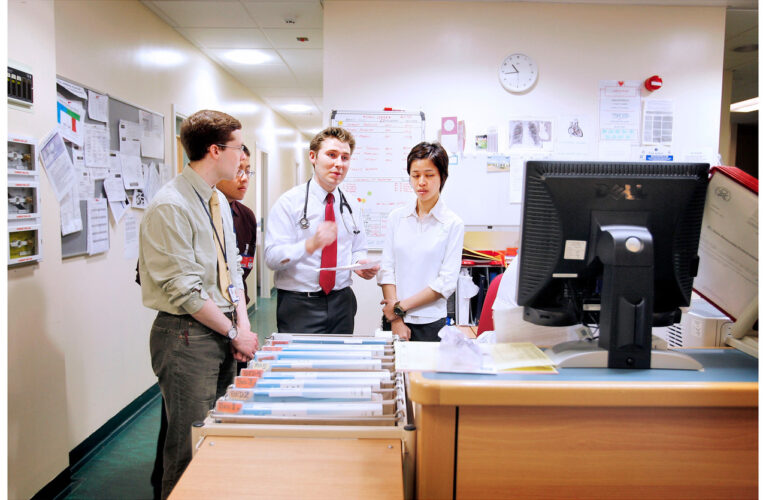If you’re unfamiliar with the concept of intercalation, you perhaps wouldn’t expect our doctors of the future to be spending a year of their degree studying social sciences. But intercalating is a valuable experience, and was particularly so for Priyanka, our blog writer who spent her year away from Medicine with SPS.
When telling non-medic friends that I was taking the year to intercalate in Anthropology and Sociology, they were either confused or thought that I had dropped out of medicine. Rather than being my mid-uni crisis, intercalation is in fact a mandatory part of the medical degree in Edinburgh as well as several other universities across the UK. In this post I will explain exactly what an intercal year involves, and describe my experience intercalating with SPS. Whether you are a medic looking at doing the course yourself, or a non-medic trying to get your head around the concept, I hope this helps you understand the elusive intercalation year better!
What is an intercalation year?

The word ‘intercalation’ literally means to insert or position something within an existing series of things. In the same way, an intercalated degree is 1 year of additional study inserted in the middle of a regular medical degree. It is usually focused on a specific area of medicine, but this can range from STEM-based subjects, like biochemistry or pharmacology, to social-science related ones, like global health or indeed anthropology & sociology. Each medical school differs in terms of the intercal options they offer, as well as the year at which you do it. In Edinburgh, all medical students have to intercalate in Year 3 (out of 6) of the degree. However, in other medical schools, the intercalation year can be optional, and sometimes students can choose whether to take it after their 2nd, 3rd or 4th year.
Why intercalate?
In Edinburgh, the short answer is because we have to! Though having said that, I am now truly glad that I did. Intercalation offers medical students the opportunity to broaden their learning horizons, gaining perspective out-with of the focused medical curriculum. For some people, intercalation affirms their desire to pursue an academic career in medicine, and provides them with the necessary laboratory skills to perform research. For others, like myself, it offers the opportunity to break-away from the medical world and to gain knowledge, skills and also friends in other areas.
After completing an intercalated degree, students graduate with an additional BSc, as well as the MBChB from their medical degree. Previously, this gave students extra brownie-points when applying to junior-doctor jobs after university. Although this is no longer the case, it still gives medical students the option of doing a PhD later in their careers, as well as teaching them transferrable skills that can benefit them as medics and in other areas of life.
My experience intercalating in Anthropology and Sociology of Medicine:
When I first signed up to this intercalation, I really didn’t know what to expect! It had been almost 3 years since I had last written an essay, and I don’t think I had ever read an academic text that wasn’t related to medicine. Despite my unpreparedness, I remember feeling comforted by the welcome we received from our course leaders. Not only did they give us our very own SPS Keep Cups (which I still use to this day!), but they were also the first personal tutors that we had at university. Having an academic mentor who I could easily reach out to was something that I hadn’t had since school, and I didn’t realise until then how much I had missed it.
Additionally, the course leaders taught a mandatory course for all the intercalating medics, called Understanding Medicine. This was like a crash course on the key concepts in medical anthropology and sociology, and gave context to our learning in other courses. We also had to choose to study either Anthropology or Sociology of Medicine, and had a list from which we could pick two other courses from too. One of my favourites was War and Peace: An Anthropological Perspective. This was one of the few options which wasn’t directly related to medicine, and there weren’t many other medics taking it either. At first, I definitely found it hard getting to grips with the volume of reading and the style of writing needed for the essays. However, the course material was incredibly interesting, and I really enjoyed the open discussions we had in our tutorials. It was quite a contrast to medicine, where our opinion on what we learn doesn’t matter in the same way.
One of the biggest challenges I had on the course was writing my dissertation. At first I felt overwhelmed by its length, but later on I found myself trying to incorporate too many ideas into one piece. Looking back, I know couldn’t have completed it without the support and guidance of my dissertation supervisor and personal tutor, as well as from my medic friends doing the intercalation. Whilst some of these were Edinburgh medics who I had become closer to throughout the year, others were students intercalating from other universities, who I had not known long but formed close friendships with. We helped each other progress by working together to brainstorm and proofread work, and by the end of the year it felt like we had a strong bond as a group.
After intercalating in Anthropology and Sociology of Medicine I feel like my university experience as a whole has become more rounded. I can definitely relate more to humanities students and the hardships of having huge amounts of reading to do! I also feel that I have gained a much broader understanding of our medical practices, and have a new appreciation for the complicated role that medicine plays in our society. On a more personal level, I feel like I’ve gained a lot more confidence in my writing skills – without which I wouldn’t be writing this blog now!
Whether or not you’re a medic considering intercalation, I would recommend having a go at studying something different for a while, as you never know what you could learn!



